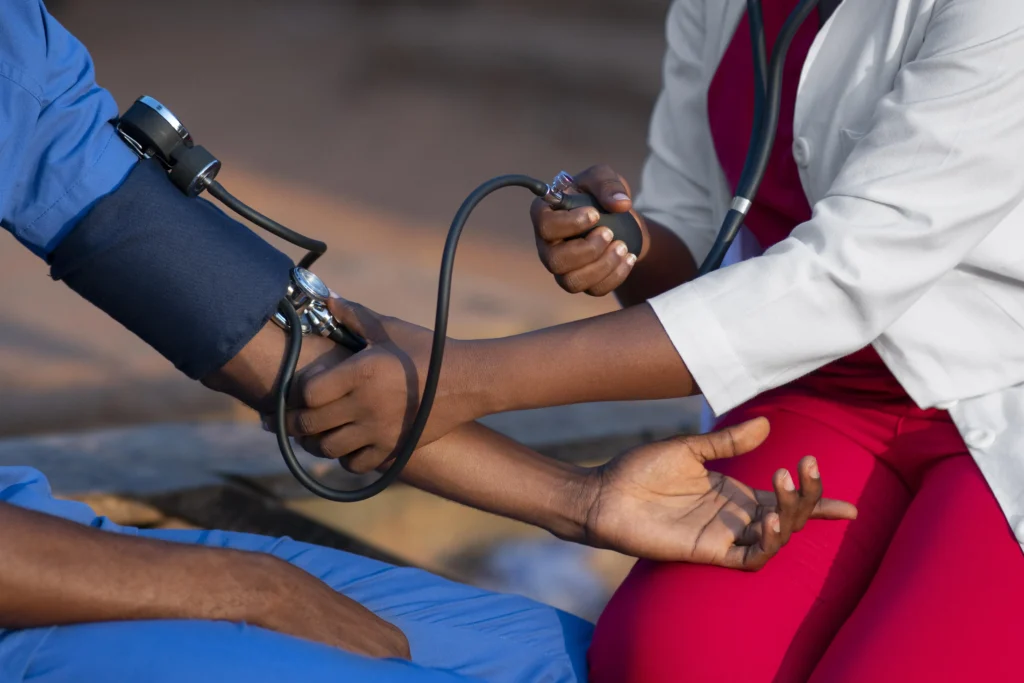
Emergencies don’t send invitations, they happen suddenly, often when we least expect them. In a fast-paced country like Nigeria, accidents and medical emergencies are a daily reality. From traffic incidents on Lagos expressways to workplace injuries or domestic accidents at home, the first few minutes after an emergency are critical.
The truth is simple, knowing what to do in those moments can be the difference between life and death. That’s where First Aid training comes in, not just as a professional requirement but as a life skill every Nigerian should have.
Why First Aid Training Matters in Nigeria?
Nigeria’s healthcare system faces unique challenges, including limited emergency response infrastructure in certain areas. According to the World Health Organization (WHO), immediate bystander intervention is often the most critical factor in surviving a medical emergency. Since ambulances and professional responders are not always available within minutes, everyday people often become the first responders.
Being trained in First Aid empowers ordinary people to:
Provide immediate care while waiting for professionals.
Prevent a condition from worsening.
Save lives when every second counts.
Whether you’re a parent, teacher, driver, security officer, or office worker, First Aid is for everyone, not just healthcare workers.
What Our First Aid Course Covers
At Ambulance Academy, our First Aid training goes beyond surface-level theory. It’s designed to be hands-on, practical, and tailored to real-life scenarios common in Nigeria. The curriculum covers a comprehensive range of skills to ensure you are confident and capable in any emergency.
Here’s a breakdown of the core areas we cover:
1. Introduction to First Aid
Principles of First Aid.
Safety protocols for both rescuer and victim.
Legal responsibilities and considerations in Nigeria.
2. Emergency Scene Management
The DRSABCD Action Plan (Danger, Response, Send for help, Airway, Breathing, CPR, Defibrillation).
Assessing risks and ensuring safety before acting.
3. Basic Life Support (BLS)
Effective CPR techniques for adults, children, and infants.
How to use an Automated External Defibrillator (AED), a crucial device for cardiac arrest victims.
Recovery position and airway management.
4. First Aid for Common Injuries
Cuts, bruises, and burns.
Fractures and sprains.
Managing bleeding and shock.
Choking response techniques.
5. Managing Medical Conditions
Asthma, allergic reactions, and anaphylaxis.
Seizures and fainting spells.
Heart attacks and strokes.
Diabetic emergencies.
6. Reporting and Documentation
Accurate incident reporting.
Maintaining and restocking your First Aid kit.
Building a workplace safety culture.
📌 Flexible Course Options
Basic First Aid: 4 to 8 hours.
Comprehensive/Advanced: 1 to 5 days of in-depth training.
Why Choose Ambulance Academy for First Aid Training?
When it comes to learning a skill that could save a life, quality matters. Here’s why thousands choose our training:
International Accreditation: Our courses are recognized globally, giving you a competence certificate valid in Nigeria and abroad.
Expert Instructors: Training is delivered by paramedics and certified emergency responders with years of field experience.
Accessible Learning Options: With centres in Abuja, Lagos, and the UK, plus online classes, you can train wherever you are.
Affordable Investment: At just ₦45,000 (approx. $30 USD), it’s a small price for a life-saving skill.
The Bigger Picture: Building a Safer Nigeria
Imagine a Nigeria where every household, office, and school has at least one person trained in First Aid. Road traffic accidents, workplace incidents, and medical emergencies wouldn’t feel so hopeless because help would always be close by.
By taking this course, you’re not just investing in yourself—you’re contributing to a safer community.
Frequently Asked Questions (FAQs)
1. How long does First Aid certification last in Nigeria?
Our certification is valid for two years, after which we recommend a refresher course to keep your skills sharp and stay compliant with international standards.
2. Do I need medical experience to take this course?
No. Our training is designed for everyone, regardless of background. Parents, teachers, drivers, security personnel, and office workers can all benefit.
3. Is First Aid training compulsory for workplaces in Nigeria?
While not legally compulsory in all industries, many employers now require certified First Aiders to meet safety standards, especially in construction, manufacturing, and schools.
4. Can I take the course online?
Yes. We offer virtual First Aid classes for those who cannot attend in person. These are live sessions led by our certified instructors.
Ready to Be a Hero?
Emergencies will happen. The question is: will you be prepared?
Our First Aid training equips you with the skills and confidence to act calmly and effectively in critical moments. Don’t wait until tragedy strikes—take the step today.
– Register Now
Visit: www.ambulance.academy
Call: +2348100368345 | +2348063103203 | +447455243627
Be the person who makes a difference. Be a hero. Learn First Aid.
